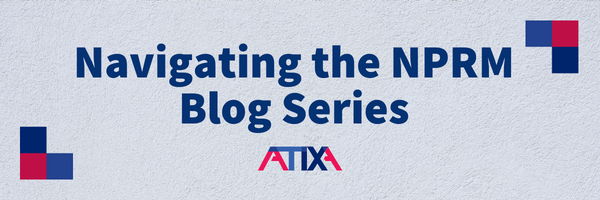
By Leah J. Reynolds, Ed.D., Consultant, TNG
Title IX coordinators across the country are preparing their institutions and school districts for the 2023 implementation of new Title IX regulations following the Department of Education’s Notice of Proposed Rulemaking (NPRM) on July 12, 2022.[1] As they contemplate policy and procedure revisions resulting from the impending changes, Title IX coordinators should take full advantage of the anticipated flexibility and administrative discretion within the proposed regulations to ensure that institutions and schools not only meet but exceed minimum compliance expectations. ATIXA refers to this as the ceiling versus the floor approach to Title IX compliance. The floor is the baseline of what you have to do. The ceiling is the aspirational goal of what you should do.
Title IX coordinators should consider the following if they seek the ceiling in their Title IX programs:
- Sexual Harassment Definition. The proposed regulations contain a revised sexual harassment definition that lowers the bar for conduct that would constitute a hostile environment and more closely aligns with the Title VII definition that human resource departments have followed for employee misconduct since its enactment. Changing the definition will require Title IX coordinators to ensure their teams are well-trained in applying the new definition while avoiding the tricky pitfall that upholding the lower standard could result in violating the First Amendment for public schools. It will be vital for Title IX Coordinators to understand that although the Title VII hostile environment definition allows employers to regulate an employee’s speech to some extent, this will not translate equally to the regulation of student speech under the proposed definition of sexual harassment. As such, in-depth training on the First Amendment, in addition to the baseline sexual harassment training requirement, will be a key to exceeding expectations under the proposed regulations. This will really become salient as greater and greater numbers of complaints about misgendering, deadnaming, and mispronouning become the most common complaints submitted to Title IX offices.
- Access to Evidence. The proposed regulations set the floor by allowing institutions the flexibility to provide the parties with an evidence summary during the investigation as opposed to the current requirement to provide all relevant and directly related evidence to the parties for their inspection. The best practice, and the approach that will exceed compliance expectations, is to ensure the due process rights of the parties are protected by continuing to provide the parties with all relevant evidence that will be used in determining whether a policy violation occurred, prior to a final determination. Just because a rule change allows you to adopt more lax practices does not mean that you should.
- Investigation Reports. The floor set by the proposed regulations allows for educational entities to do away with the practice of writing an investigation report that details the relevant evidence collected, and the investigator’s findings, if applicable. Although investigation report writing can be time-consuming and burdensome, the ceiling approach is to continue the practice of writing comprehensive investigation reports and allowing the parties to review and respond to these reports before a decision is rendered.
- Investigation Models. The proposed regulations provide flexibility for a return to the “single-investigator model,” which means a single person, who could be the Title IX coordinator, serves as both the investigator and the decision-maker. The best practice is to separate the investigator role from the decision-maker role. This approach minimizes the likelihood of bias within the process and allows for greater due process for the parties by having a second neutral individual other than the investigator reviewing the evidence and making a determination. ATIXA also recommends not having the Title IX coordinator serve in the investigator or decision-maker role whenever possible. The Coordinator is responsible for compliance and process oversight; they will struggle to evaluate the recipient’s response without bias if they are a part of the process.
- Standard of Proof. The proposed regulations now provide flexibility for recipients to choose between preponderance of the evidence or clear and convincing evidence if the recipient uses clear and convincing evidence as the standard of proof for comparable disciplinary proceedings. Clear and convincing evidence is a higher standard of proof than preponderance of the evidence, making it harder for a complainant to prove a violation than for a respondent to prove no violation. How equitable is that? The best practice is to use the preponderance of the evidence, or more likely than not, standard of proof for all Title IX-related complaints. Preponderance of the evidence is the most equitable standard because it places the parties on equal footing in the process, advantaging no party at the expense of the other.
A wise person (who may be my boss) once said, “Meeting the floor of compliance is the immediate, near-term goal. But the floor cannot be the end goal.” Be encouraged to do what is necessary to “represent excellence within your school-based Title IX program.”[2] Strive toward the ceiling of best practices. Your community deserves it. Fighting for what is right may be a hard thing, but for professionals of integrity, it’s the only thing.
Read more ATIXA Tip of the Week blogs here.
[1] Nondiscrimination on the Basis of Sex in Education Programs or Activities Receiving Federal Financial Assistance, 87 Fed. Reg. 41390 (July 12, 2022).
[2] Sokolow, B. A. (2022, July 12). More Flexible Title IX Regs Pose New Dilemmas. Inside Higher Ed. https://www.insidehighered.com/views/2022/07/12/flexibility-title-ix-regs-blessing-and-curse-opinion.
